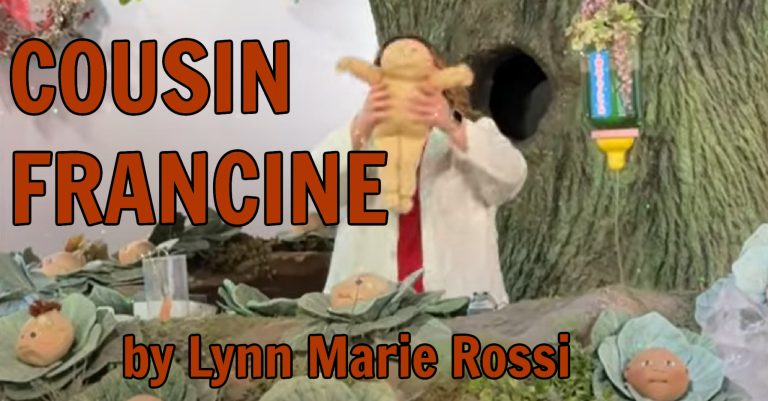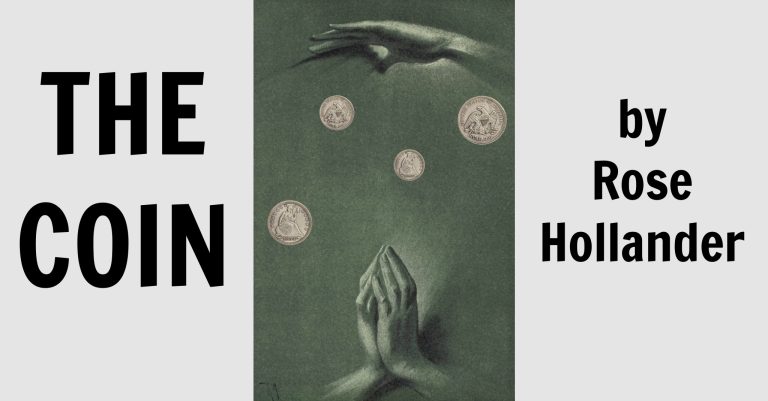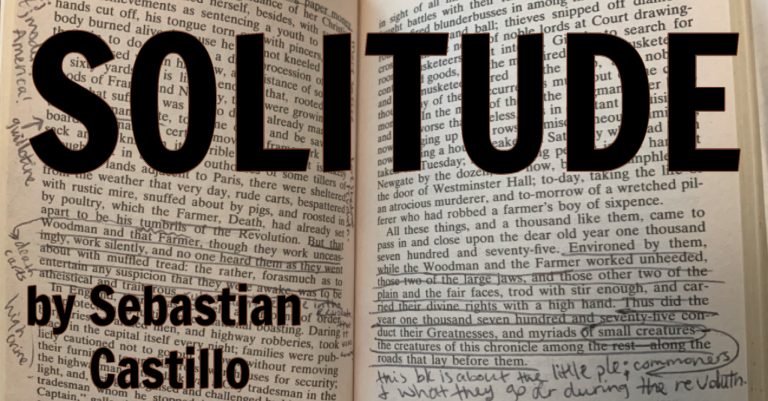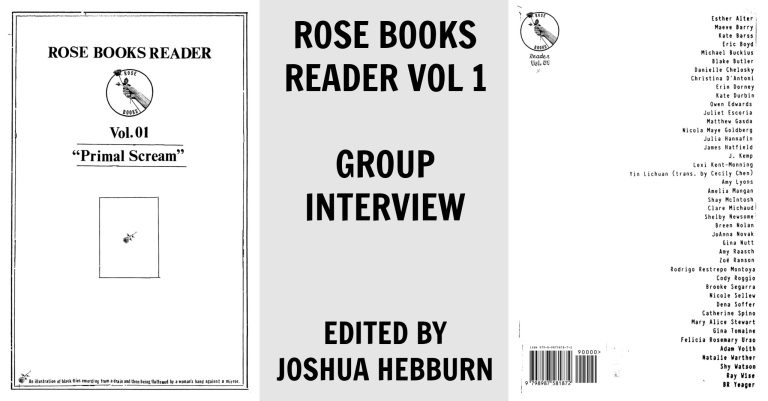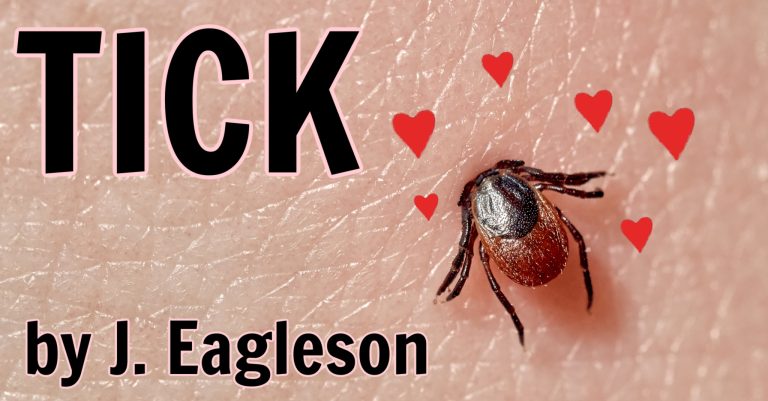
OUTSIDE HUSBAND by Natalie Warther
The survivalist stuff started as a hobby for my husband. An attempt to disconnect from the tech-dependent modern world. But quickly, our renovated backyard started looking more like a trash dump than a place to entertain the neighbors. He just kept making “tools.” Dental floss snares. Crayon candles. Pantyhose fishing nets. Dryer lint tinder. Maple syrup mouse traps. He used every single trash bag in the house for the water collection system. “Where are your shoelaces?” I called to my sons as they trudged towards the bus stop, flopping out of their sneakers. “Dad took them for his tourniquet kit.”

